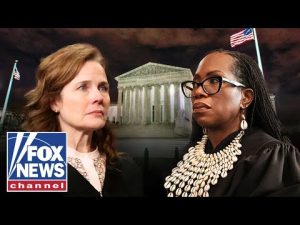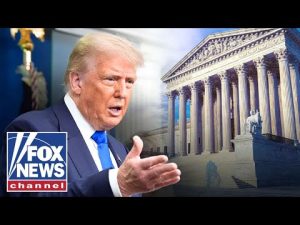On a balmy night last year, the political world was buzzing as Donald Trump and Joe Biden prepared to face off in a much-anticipated debate in Atlanta, Georgia. The clock was ticking down to the showdown – just one hour until the fireworks were set to begin. The stage was set with CNN’s Jake Tapper and Dana Bash as moderators, although one could argue the moderators leaned more towards a one-sided discussion rather than a fair fight. People wondered if it was just a ploy to give Biden the upper hand. The excitement in the air was palpable, but so were doubts about the 46th president’s mental sharpness.
As the lights dimmed and the debate kicked off at 9 p.m., viewers everywhere settled in, popcorn on laps and drinks in hand, fully expecting an unforgettable show. What they didn’t expect was for Biden, affectionately known as “Rehoboth Beach Joe,” to deliver a series of disjointed statements that left everyone questioning whether he could indeed hold his own in the spotlight. Even as Biden struggled through comments about Medicare and his administration’s COVID efforts, he radiated a sense of determination. However, viewers couldn’t shake the feeling that something was off.
While Biden’s supporters hoped for a triumphant display, Trump’s backers were already nursing their disbelief as they watched. The stark contrast in reactions between these groups added fuel to the fire of political discord. On one side, some couldn’t fathom the extent of Biden’s apparent cognitive decline, while the other side had long suspected that the mainstream media had been pulling the wool over their eyes. Many Republicans, who had been ridiculed for suggesting Biden was misfiring more than a pinball machine, found themselves shaking their heads in disbelief.
As the debate progressed, it became clear that the conflict was no longer just between Biden and Trump but with the media as well. The liberal talking heads, who had spent years attempting to cover for Biden, were caught off-guard, and their credibility was dangling by a thread. Commentary following the debate highlighted the baffling nature of Biden’s responses, and those who had previously dismissed concerns about his health couldn’t ignore the mounting evidence. The realization that something was indeed wrong with Biden led to an uncomfortable silence in living rooms across the nation.
In the grand tradition of both political and media drama, after the debate, there was an avalanche of attempts by the mainstream outlets to prop up their chosen candidate. The narrative shifted, claiming that Biden had dazzled viewers, pushing any negative feelings about his performance into the recesses of political memory. It seemed the media had made a pact to present Biden in the best light possible, a classic case of “don’t believe your eyes.” The collective disillusionment of those who had clung to the myth of a vigorous Biden left many wondering just how far the mainstream narrative could stretch before it snapped back.
Ultimately, the night marked a turning point in American politics. Those who had watched with skepticism realized that the grand political stages of America had fallen to the chaos created by a lack of transparency. There were no winners that night, just startling revelations that left many voters feeling duped. So here we are, a year later, still pondering the aftermath of what was once thought to be just another debate, but which now feels like a pivotal moment in understanding who leads America—or at least, who struggles to do so. Joe Biden, reminiscent of a footnote in history, now serves as a reminder of how quickly power can shift in the political landscape.







